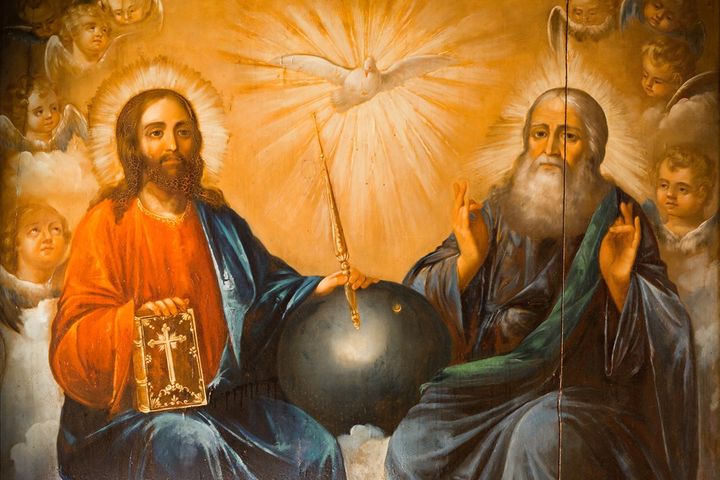Message from Abbot Paul - Trinity Sunday
Message from Fr Paul for Trinity Sunday 2020
On the Sunday after Pentecost, we celebrate the solemnity of the Holy Trinity. It’s an important feast that invites us to meditate on all that God the Father has revealed to us through his Son, Jesus Christ, and through the Holy Spirit. It was only established as a feast for the whole Catholic Church by Pope John XXII in 14th Century. In the Eastern Churches, Pentecost Sunday itself is called Trinity Sunday, as the Holy Spirit, whom we celebrate as coming at Pentecost, completes the Trinity. So today we give thanks to Almighty God for revealing himself to us as a Trinity of Persons, whom we know as Father, Son and Holy Spirit. All great theologians throughout the history of the Church have written treaties and sermons on the Holy Trinity, which, together with our belief in the Incarnation, is the fundamental doctrine of Christianity. God is a mystery and we come before him with awe and adoration. Those who study and write about the Holy Trinity do so with humility and respect, confessing that they can but scrape the surface of the reality we call God.
The Gospel this Sunday comes from John 3:16 -18. It is part of the conversation that Jesus had with Nicodemus, a leading Jew, who came to see him by night early on in his ministry and only appears again after the crucifixion to bury him together with Joseph of Arimathaea. What Jesus says to Nicodemus are some of the best-known words in the Bible. “God so loved the world that he gave his only Son, so that everyone who believes in him might not perish but have eternal life. For God sent his Son into the world,
not to condemn the world, but so that through him it might be saved.” We might ask where is the Holy Spirit here, but it is through the Spirit that the Son is sent by the Father and comes into the world, for we know that Jesus was conceived in Mary’s womb by the Father’s will and the working of the Holy Spirit. In the Incarnation we discover the love of the Holy Trinity, the love of God for his children.
Jesus continues, “No one who believes in him will be condemned; but whoever refuses to believe is condemned already because he has refused to believe in the name of God’s only Son.” Here Jesus explains to Nicodemus that we can only be saved by God’s own action in sending his Son to be our Saviour and that we must accept salvation as God’s gift in the Son and through the Holy Spirit. Salvation comes from faith in the incarnate Son of God, faith in Jesus Christ God and man, and not from the keeping of the law of Israel. Here we see that St John’s theology is in line with that of St Paul, expounded in his letters and in the Acts of the Apostles. To end with, just a quick thought, as this is heavy stuff. Had I been Nicodemus, how would I have replied to Jesus?










